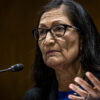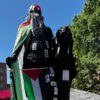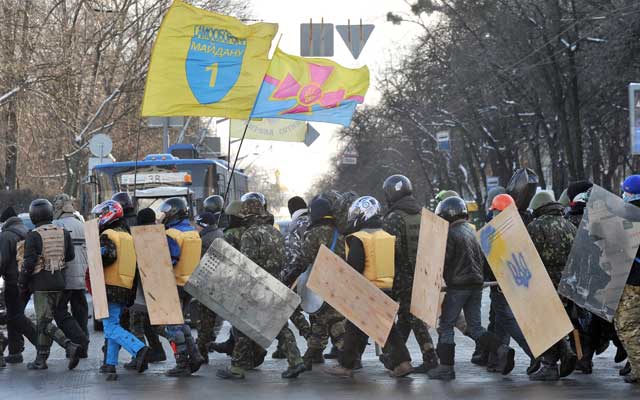The political crisis that consumed Ukraine for the past two months is showing signs of positive developments. President Viktor Yanukovich is beginning to meet some of the demands of the demonstrators, but the opposition is still demanding early presidential elections.
What are the latest developments in Ukraine, and why did the prime minister resign?
Ukrainian people have been protesting in the country’s capital, Kiev, since late November of last year after Yanukovich refused to sign an Association Agreement with the EU.
On January 16, pro-Yanukovich members of parliament passed sweeping anti-protest legislation that effectively banned public protests. This intensified protests, leading to a violent confrontation that resulted in four people killed and hundreds injured. The new wave of protests spread beyond Kiev. People came out on the streets throughout the country, even in the pro-Yanukovich eastern and southern parts of Ukraine.
Fearing that his presidency might be overthrown, as he is increasingly losing control over the country, Yanukovich decided to offer some concessions to the opposition. On Tuesday, Prime Minister Mykola Azarov resigned from his position, and the parliament reversed the anti-protest legislation.
What is Russia doing—or not doing?
Russian President Vladimir Putin wants to rebuild a sphere of Russia’s “exclusive interests,” and Ukraine is at the top of his list of priorities. Russia launched a massive campaign of intimidation and punished Ukraine with higher tariff and non-tariff measures last summer to prevent it from signing the agreement with the EU. Furthermore, Putin pledged Ukraine $15 billion in loans, credits, and natural gas discounts to bail out Ukraine’s economy.
It is apparent that Russia is willing to pay a steep price to keep Ukraine in its sphere of influence. The question is how far Russia is willing to go. Would Putin go as far as sending Russia’s military to help Yanukovich, who is still clinging to power? If so, it is unlikely that Russia would do so before the closing ceremonies of the Olympic Games in Sochi.
What is President Obama’s Administration doing?
Last December, U.S. Assistant Secretary of State Victoria Nuland visited Ukraine, where she talked to Yanukovich and the protesters about finding a peaceful solution. Also, as a symbolic gesture of U.S. support for the demonstrations, she handed out food to the protesters.
Last week, the U.S. embassy in Ukraine revoked visas to some Ukrainian officials in response to their involvement in violent crackdowns on protesters last November and December.
Vice President Joe Biden had several phone conversations with President Yanukovich over the past two months. On January 27, Biden expressed his support for a peaceful resolution and warned against any use of violence.
What should the U.S. and European Union (EU) do?
The U.S. and EU should continue a dialogue with Ukrainian government and opposition leaders about reaching a peaceful solution to the crisis.
Moreover, the U.S. and EU should work with international and Ukrainian nongovernmental organizations to document human rights violations committed by Ukrainian leadership and law enforcement authorities and denounce any such violations through the Organization for Security and Cooperation in Europe.
Finally, the U.S. and EU should support early presidential elections in Ukraine and the release of all political prisoners, including former Prime Minister Yulia Tymoshenko.























